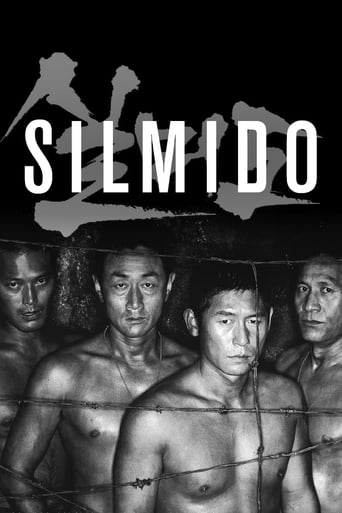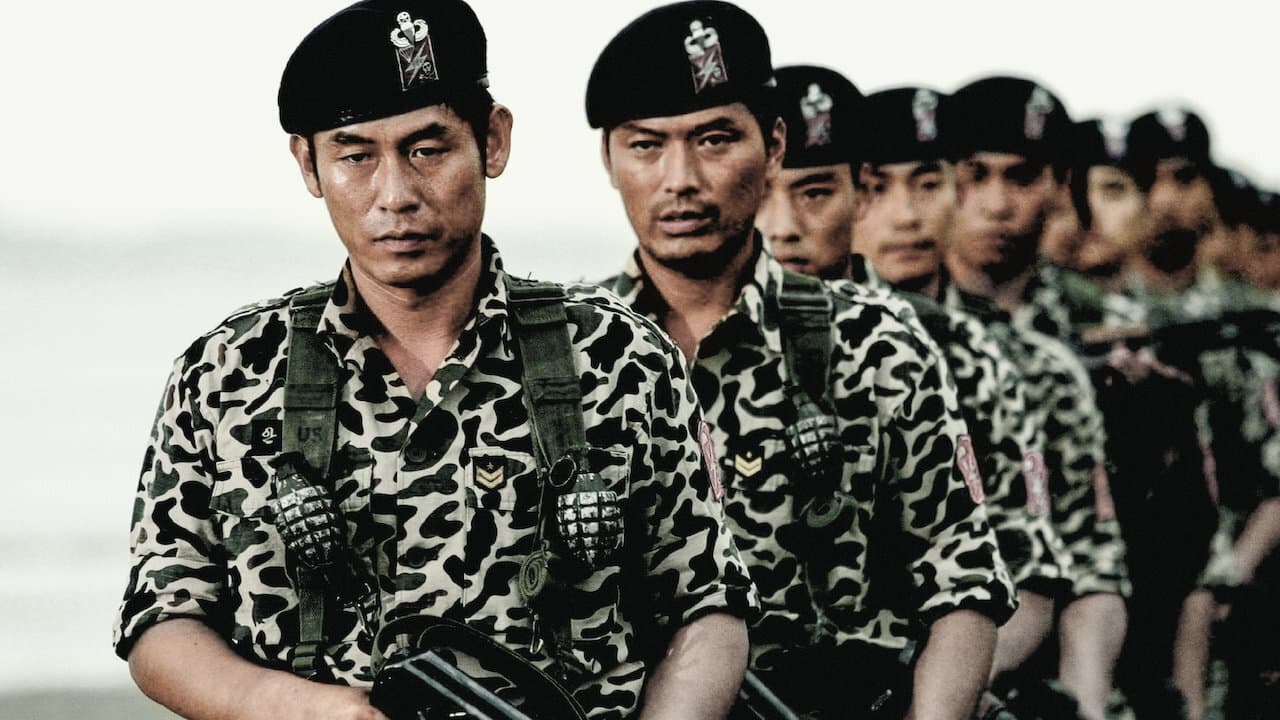Bene Cumb
From the very beginning until the very end, in this totally "male" film (women are visible for about 5 minutes) we see people of different background making choices - often neither right nor wrong, but what is necessary at the moment. However, political and military choices are often different, the latter is usually linear, without so-called second thoughts. Even if the mission is questionable, "politically incorrect". On the other hand, Korea could have been united if the Unit 684 succeeded... Anyway, the film is evenly strong, based on true events, characters are elaborated and their developments and deeds are logical and reasoned. The cast is interesting as well, even those depicting protagonists can easily merge into team-play and joint decisions, not being stubbornly single heroes as we often see in e.g. US or Soviet war films.Silmido is undoubtedly for you if you like powerful military dramas.
jennyhor2004
Apparently based on actual incidents, this epic film ought to have been just a straightforward "Dirty Dozen" action film with a sketchy plot, loads of violence and boot-camp brutality, displays of macho camaraderie and a schmaltzy message about dying for your mates and country; "Silmido" is all of that on one level yet turns out to be more. Perhaps its Korean setting and the very contemporary nature of the politics invoked – the Korean War technically hasn't finished – help shove the film into a realm audiences inside and outside the country can relate to but I'm not sure that explains the feeling I have that "Silmido" would affect a lot of people who have no knowledge of the country's history in a very personal way.The plot is easy to follow: in the late 1960s, after some North Korean agents have been captured and executed by South Korean military forces after confessing that they were on a mission to kill President Park Chunghee, the South Koreans themselves toy with the idea of sending men on a similar mission to kill North Korean leader Kim Ilsung. Under orders from the government, the army sends over 30 hardened criminals on death row and other outcasts to Silmido island to undergo a brutal training regime that will transform them into elite assassin force Unit 684. For much of the film, viewers are treated to harrowing if well-staged scenes of unrelenting Spartan training and often sadistic torture; the proceedings can be hard to watch sometimes and the film's pace never lets up. When the men have been disciplined and honed into an efficient fighting force, the government orders change and the army is now faced with a fanatical killing machine it does not know what to do with.The plot is mostly predictable: men who can't handle the training drop out and there's a token death; the army leaders and soldiers who train the would-be assassins are suitably granite-faced and apply the requisite beatings and excessive machine-gun fire punishments. There's room for slapstick humour in one scene where a man runs into a river before his minder even has a chance to brand him with a hot poker! The music soundtrack is stirring and heroic to excess and there is plenty of Korean-style OTT melodrama; compared to other east Asians, Koreans have a reputation for being highly emotional and intense people and "Silmido" milks the emotional potential inherent in scenes between individual characters who have personal crosses to bear and old scores to settle.Where the film really lifts its game is in what goes on between the army and the government represented by stock character stereotypes outside Silmido island: the general political situation changes, South Korea decides it's better to co-exist with and even do deals with Kim Ilsung, and senior bureaucrats and politicians waive away the creation of Unit 684 as though the 31 remaining men in the unit are just so many flies to be swatted away. The hoplites' loyalty to their country and fighting zeal count for nothing but their very testoterone-charged fanaticism, the bonds of loyalty among themselves and to their superiors, and their readiness to face death so that they can truly feel alive now make them a serious threat to South Korea's security. At this point in the film, non-Korean viewers realise there are two ways to go: the plot could just let the men go off to North Korea with the army and government cynically figuring that the North Koreans can handle them their own way; or the men could self-destruct. As Koreans know already, the men do self-destruct but the ways in which they do it turn out quite unpredictably. Their demise is at once heroic and pathetic and the film's coda is quietly powerful and depressing in a way that only skillful and clever Korean film-making can make it.The incidents of "Silmido" are particular to Korean history, so much so that I don't expect Koreans born after the period of military rule (which ended more or less about the late 1980s or early 1990s) to know those events, but the film's themes of political expediency, bureaucratic indifference, the cynical exploitation of loyalty, camaraderie and patriotism, a government's inability to consider the consequences of creating a killing machine with only one short-term purpose in mind and the psychological effects that intense military training might have on people are surely issues that will resonate with viewers beyond Korea. Above all there is something exhilarating about men who, in training to face certain death, discover purpose and new life, and you can't help but feel that in spite of their brutal training and psychological transformation, they experience a kind of freedom and become supermen, far beyond the confines of the society that originally produced them.
tim-itc
'Shilmido' This movie is very sad...A group of 31 constituted with criminals including convicts on death rows were forcibly lead to an island to be trained for a special mission after penetrating into North Korea.The government, however, is trying to secretly kill them all due to a abrupt change of South-North international diplomatic relationship.I can hardly forget the last scene in which all of those who could survive thanks to what they have been trained killed themselves.This movie partially teaches us history of this country and for that I would like to recommend it to Korean people regardless of sexes nor ages.The best movie of my entire life.
Dan Starkey
Korean film is blossoming, from the action thriller "Shiri" to the delightful romantic "My Sassy Girl." "Silmido" takes this ability to make excellent films in a political direction. "Silmido" is to South Korea as Costa-Gavras' "Z" was to Greece: truth-telling about terrible government misdeeds. Unlike "Z," however, "Silmido" is not only shown at home, but is hugely successful, demonstrating the increasing strength of Korean democracy. One hopes that films like "Silmido" are a sign of increasing openness, and better times ahead for the Korean people.As was the case with "Z," the excellence of the film guarantees an international audience for the story, and the widespread attention may well lead to additional revelations. Although the details of the government plot are sordid, the film romanticizes the actions of death-row convicts, and one suspects that the filmmakers took some liberties in portraying some of their noble and comradely behavior. Nevertheless, an first-rate movie and highly recommended.


 AD
AD



